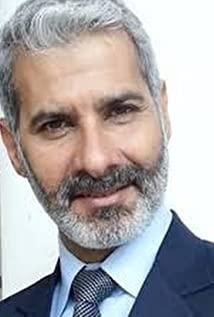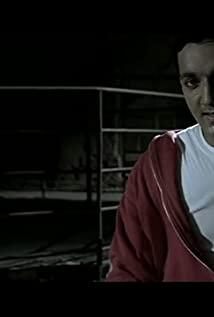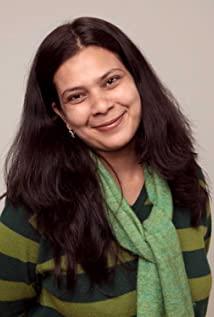Muna, what strikes me most is the shy and pleasant smile on his slightly melancholy and peaceful face—the hopeful, uncertain smile that seems to disappear in an instant. His love that he did not dare to express due to class restrictions, his youthful expectation and joy, his shy but sincere eyes, how could he not be moved? He lives in the crowded and empty city of Mumbai, doing a lowly job, but I don't see his negativity and self-defeating. No, this young man has dreams. He is content with life and treats people with sincerity. He has a quiet but not silent power in his whole being. His soft eyes are so warm and rare in this big city.
The most distressing thing is when the light spot that just appeared was shattered, when his brother died due to a gang fight, when his eyes widened and he avoided Shay's camera. That was when his eyes were heaviest, when his peaceful life was shattered, when he was tossed between dreams and harsh reality. He lowered his eyes, his face tightened, and we were afraid that he was going to give up under the pressure. But he didn't. He accepted it, his heart was not dead, he endured it silently, and he would not give up so quickly.
There was no surprise smile on Muna's face when Shay hugged him, but when he finally caught up to the car and gave Shay the painter's address, when he turned to leave, the camera showed us the corners of his mouth slightly raised - What is that, is it relief? Is it the power rekindled in the silence? Maybe it is, at least we all understand that Muna will continue to live in Mumbai with strength and persistence. Maybe he will no longer have such a youthful dream, but he has also experienced a more mature and determined strength. He will not give in.
The painter An Run, he has always maintained a melancholy and indifferent expression. As an artist, has he felt all the pains of Mumbai in his mind? Has he seen all this, and his heart is faintly hot? Did he sensitively take all the messages from Mumbai and smear it into a painting? He doesn't like to speak, and he doesn't seem to care what others say about his paintings. What's the use of that? In his own way, he showed the loneliness and estrangement in society, the darkness and corners of society, and he was sad and silent about it. How could he care about other people's opinions? How could he have the strength to speak for his work?
The girl in the video, You Simin, said in the first letter, "I'm still the same You Simin I used to be." The happy You Simin, but left a sad farewell in the last letter. Her eyes are so charming, so big, they seem to contain all the sparks of happiness, but sadness makes them sad. She talks about her life calmly, but who can imagine her sadness? In a seemingly rich life, but emotionally hurt, why should I get married? She asked that, I shouldn't have. She was unhappy, life weighed on her, and there was no more beating light in her eyes. She no longer resisted.
In Shay's photos, those ordinary people in Mumbai, those who are doing coolies and earning a living, we see them in the photos, inadvertently revealing the peace and joy, but also the sadness and depression in those pairs of eyes. .
The lonely old lady, who seemed to be looking straight ahead, turned her head away as the grieving artist leaned against the wall to hide her face and wept—can she taste the grief? She understands it. That look is also a kind of companionship.
People who are sad, people who are struggling for life, living in a city, each accepts oppression and tests from the outside world, and experiences joys and sorrows, but there is often a separation between them. If one day, this separation, when a pair of shoulders can lean on a pair of shoulders, when sadness and joy can be talked and listened to more, when a crowded city has more heart blending and warmth, less Man-made cold restrictions and oppressive restraints, perhaps at that time, those who struggle alone, those who grieve alone, will have more strength.
View more about Dhobi Ghat reviews








